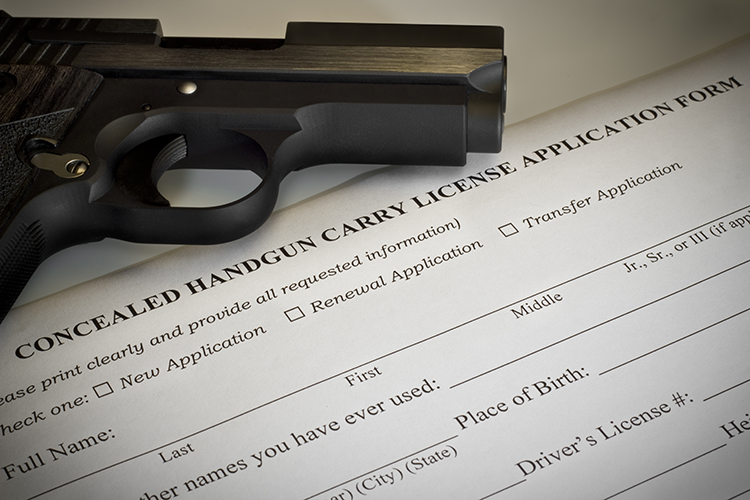'Spirit of Aloha' clashes with 'federally mandated' gun lifestyle, Hawaii Supreme Court says

The Hawaii Supreme Court has upheld state laws that generally ban carrying guns in public in an opinion that criticizes the U.S. Supreme Court’s historical approach to Second Amendment cases. (Image from Shutterstock)
The Hawaii Supreme Court has upheld state laws that generally ban carrying guns in public in an opinion that criticizes the U.S. Supreme Court’s historical approach to Second Amendment cases.
“In Hawaii, the Aloha spirit inspires constitutional interpretation,” the state supreme court said in its unanimous Feb. 7 decision. “The spirit of Aloha clashes with a federally mandated lifestyle that lets citizens walk around with deadly weapons during day-to-day activities.”
Reuters, Bloomberg Law and the Associated Press (all via How Appealing) have coverage.
A man named Christopher Wilson had challenged Hawaii’s “place to keep” laws that required him to keep guns and ammunition at his “place of business, residence or soujourn,” according to the decision and Bloomberg Law. The laws had an exception that allows people to carry a handgun for self-defense if they have a license.
Wilson cited the Supreme Court’s June 2022 decision in New York State Rifle & Pistol Association Inc. v. Bruen, which found a Second Amendment right to carry a handgun for self-defense outside the home. In that decision, the Supreme Court said gun restrictions should be evaluated based on the nation’s historical tradition.
The Hawaii Supreme Court said it would interpret the state constitution first and then the U.S. Constitution. The section of the opinion evaluating the laws under the Constitution did not begin until page 52 of the 53-page opinion.
The Hawaii Supreme Court evaluated a section of the Hawaii Constitution that mirrors Second Amendment language. Despite the similarities, the state supreme court concluded that the Hawaii Constitution does not create a constitutional right to carry a firearm in public for self-defense. The state’s historical tradition supports a “collective, militia meaning” for the right to bear arms, rather than an individual right, the state supreme court said in an opinion by Hawaii Supreme Court Justice Todd W. Eddins.
“When the Hawaii Constitution was first ratified, courts throughout the nation’s history had always interpreted and applied the Second Amendment with the militia-centric view,” Eddins wrote.
The state supreme court also concluded that the original purpose of the Second Amendment was to protect states’ rights to have militias.
“That’s what they were thinking about long ago,” Eddins wrote. “Not someone packing a musket to the wigmaker just in case.”
“Bruen unravels durable law,” Eddins wrote. “No longer are there the levels of scrutiny and public safety balancing tests long-used by our nation’s courts to evaluate firearms laws. Instead, the court ad-libs a ‘history-only’ standard.”
“We believe it is a misplaced view to think that today’s public safety laws must look like laws passed long ago,” Eddins said. “Smoothbore, muzzle-loaded and powder-and-ramrod muskets were not exactly useful to colonial era mass murderers. And life is a bit different now, in a nation with a lot more people, stretching to islands in the Pacific Ocean.”
The Hawaii Supreme Court also quoted a Bruen concurrence by Supreme Court Justice Brett Kavanaugh that said states retain the authority to require that people have a license to carry firearms in public. Hawaii’s two “place to keep” laws at issue have an exception allowing people to carry a handgun for self-defense if they have a license, the state supreme court said.
The laws “do not graze Wilson’s Second Amendment right,” the state supreme court concluded.
The case is Hawaii v. Wilson.



